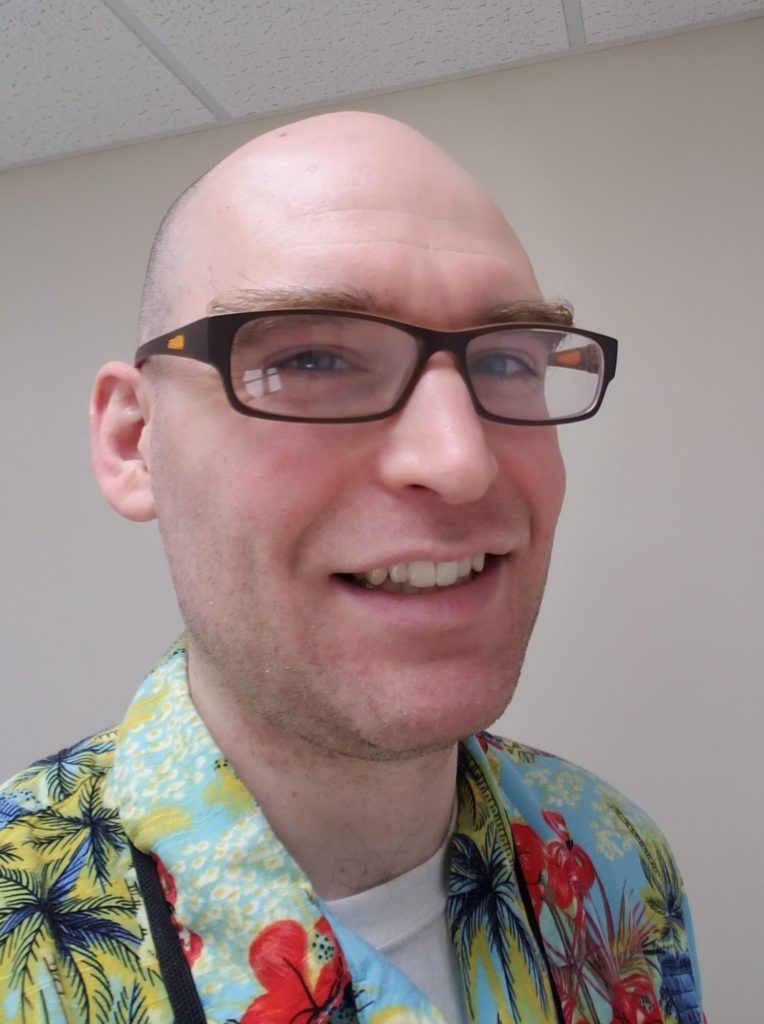Sandra Glastetter, CASAC, recommends spending more time with family and children to help manage feelings of isolation, which she did recently with her daughter Kaylee.
Clinicians offer tips and activities to manage stress
Individuals receiving support for mental health or addiction have had to cope with the added pressure of COVID-19. The personal challenges posed by the public health emergency are not limited to those receiving mental health or addiction treatment, which is why the clinical staff at Citizen Advocates are offering advice to individuals managing through these unprecedented times.
Michael Comeau is a Licensed Master Social Worker at the Citizen Advocates Crisis & Recovery Center, and provides clinical support for mental health and addiction.

“We’re definitely seeing a rise in anxiety. If people aren’t experiencing more anxiety themselves, they have family members or children who are,” said Mr. Comeau. “Even if everyone at home is managing well, other people in their lives aren’t – people feel more irritable, worry more about things they didn’t worry about before, and have a harder time dealing with things that used to be easily managed. These things rub off.”
The key, he notes, is to help individuals cope with recent events in a non-judgmental way so they can manage their challenges over the long term.
“People want to go back to ‘normal,’ so we are working with people to accept the present moment and go more with the flow when we can’t predict or know what ‘normal’ looks like anymore,” said Mr. Comeau.
Another challenge clinicians face is providing treatment through tele-mental health. Citizen Advocates made the decision early on to pivot the majority of its clinical services to tele-mental health in response to social distancing restrictions issued in mid-March. While patients continue to receive essential services, the transition to tele-mental health has been an adjustment for some according to Sandra Glastetter, a Credentialed Alcohol and Substance Abuse Counselor for Citizen Advocates.
“The remote treatment platform allows us to maintain care, but I feel that I am unable to offer the personal touch they might need at this time,” said Ms. Glastetter. “Many individuals living with addiction feel alone, and participating in our services provided them with support from peers and clinicians.”
To make up for that lack of connection, she has been offering tips to manage feelings of isolation.
“We talked about positive or creative outlets like walking, hiking, drawing, painting, gardening or projects around the house,” said Ms. Glastetter. “They can also read a good book, engage with children more and help them remain calm, and instead of texting give friends a call.”
Both clinicians agree people should limit their consumption of news related to the pandemic, both on the television and online.
“We need to stay on top of the latest recommendations and then focus on things we can actually control, like our daily routine,” noted Mr. Comeau.
Likewise, those who have increased tobacco use or vaping as a coping mechanism to “check in with themselves” by asking the following questions, says Mr. Comeau.
“Am I ok with this increase? Am I stressed and I haven’t acknowledged it? Have I stopped doing things that used to provide an outlet? If I have, what can I do to replace them with my current resources?” posed Mr. Comeau.
Regardless of mental health or addiction, there is a basic approach all individuals can adopt to accept what is happening in a non-judgmental way, particularly when we feel a lack of control in a particular situation.
Mr. Comeau likens it to Northeastern weather in January. For someone not use to frigid weather, lamenting that it is cold won’t help the situation.
“The person is fighting reality – they can’t actually change anything, and the more they complain, the worse they feel – before they ultimately end up going outside anyway,” said Mr. Comeau.
“Just like people can accept the weather, people can accept other things – including the fact that there is a global pandemic. It is happening. Accepting this lets us focus on options, on things we can do to keep ourselves safer, and on things we can do to keep ourselves healthy, instead of increasing distress by denying what is the reality we are experiencing.”


 Previous Post
Previous Post

